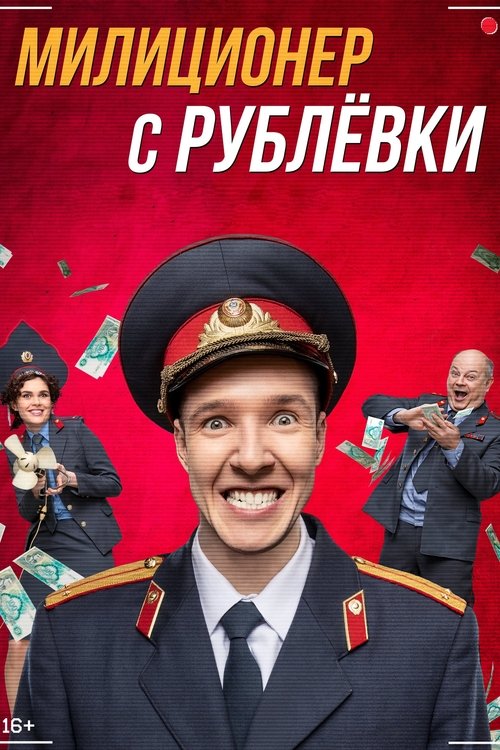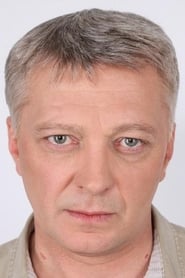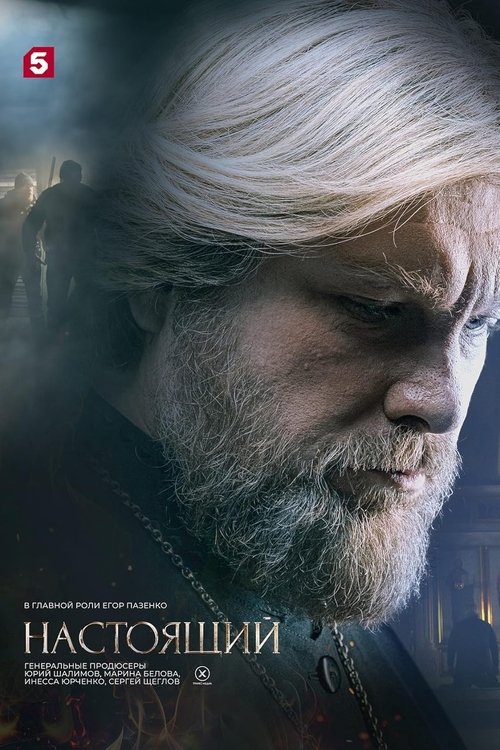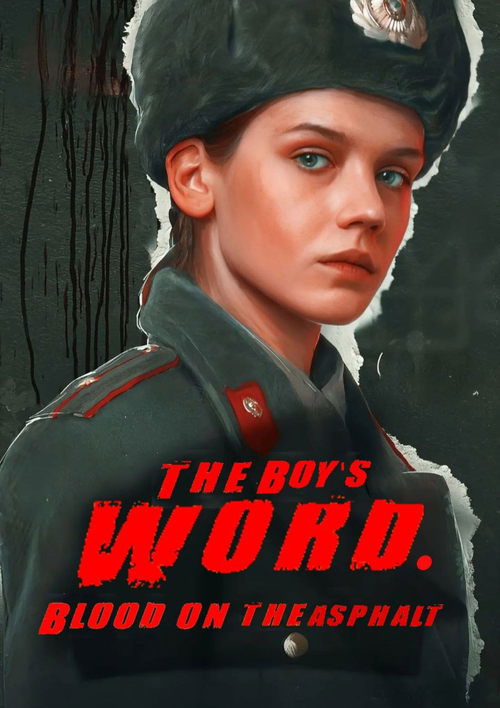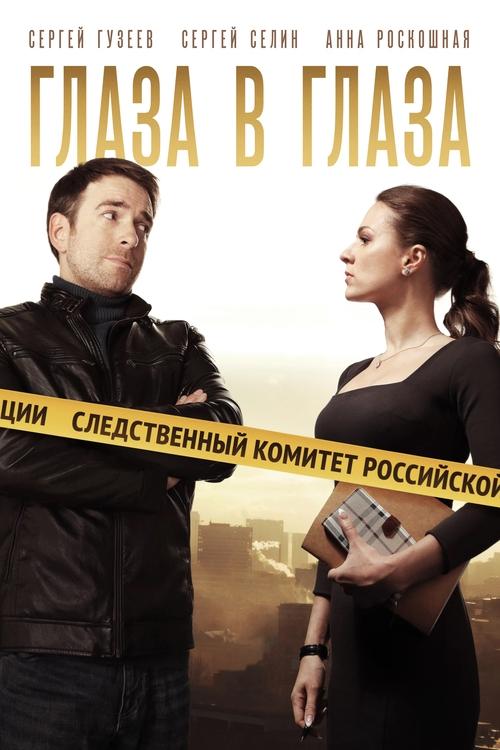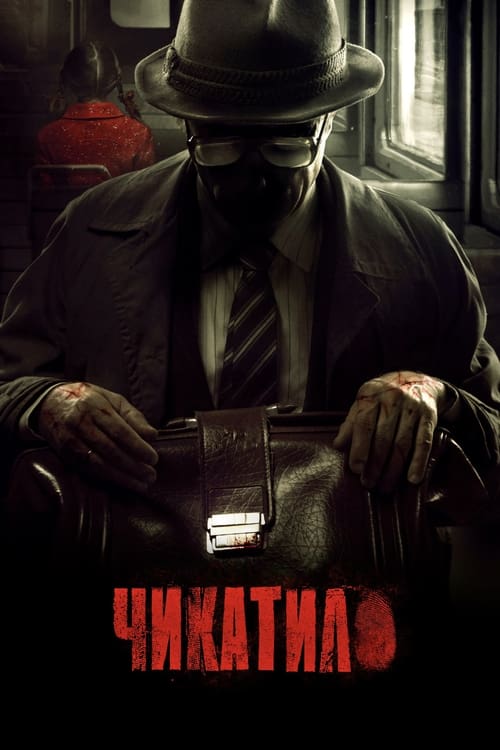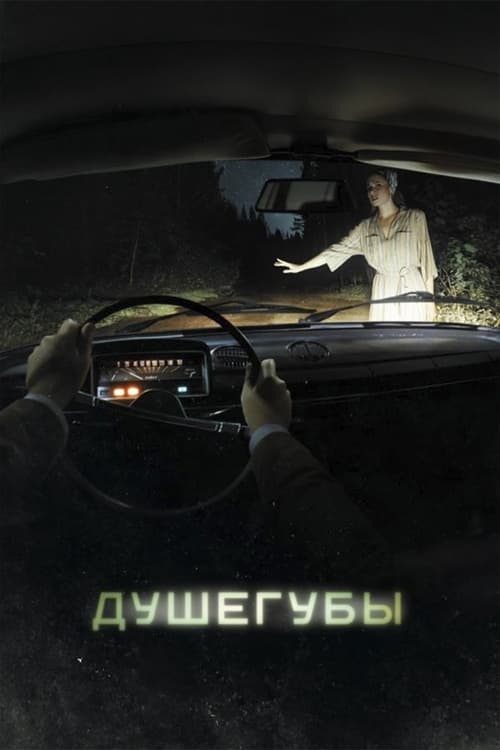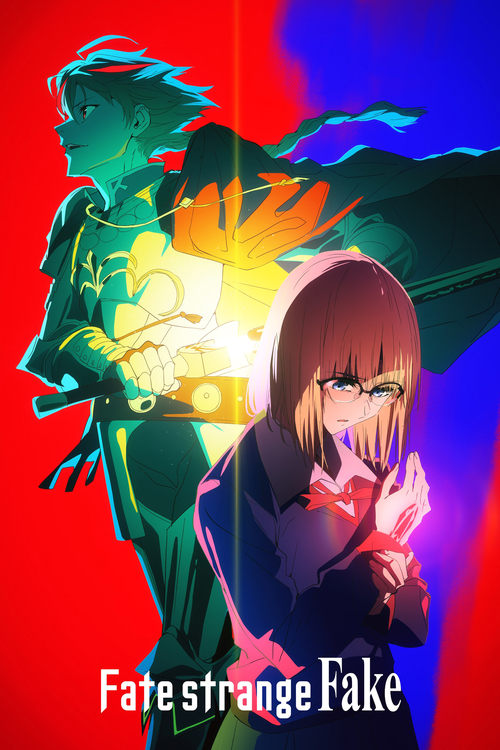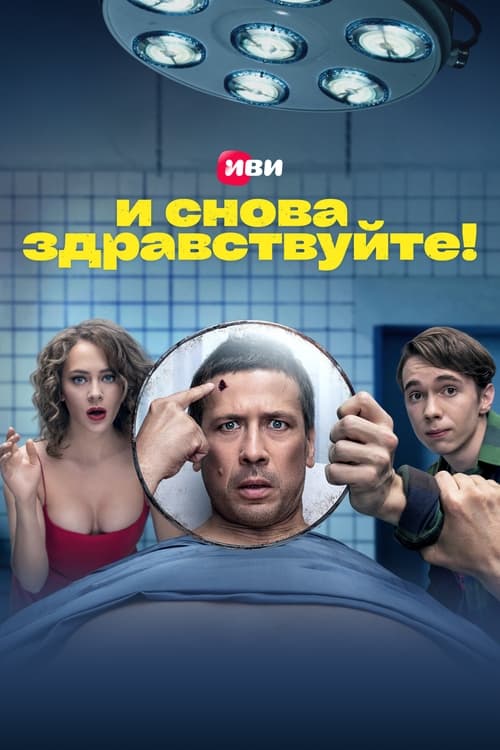
Ask Your Own Question
What is the plot?
In the opening scenes of "Militiaman from Rublyovka," we are introduced to the protagonist, a dedicated police officer named Andrei, who works in the affluent district of Rublyovka. He is portrayed as a principled man, deeply committed to his job and the safety of the community. The story begins with Andrei responding to a call about a disturbance at a high-profile party. Upon arrival, he finds a chaotic scene filled with wealthy socialites, and he quickly assesses the situation, showcasing his ability to maintain order amidst the chaos.
As the party unfolds, Andrei encounters a group of young men who are disrespectful and dismissive of his authority. Tensions rise when one of the men, a well-connected son of a local oligarch, challenges Andrei. The confrontation escalates, and Andrei is forced to assert his authority, leading to a physical altercation. This moment establishes the power dynamics in Rublyovka, where wealth and influence often overshadow the law.
Following the incident, Andrei faces backlash from his superiors, who are more concerned about maintaining the image of the police force than addressing the misconduct of the wealthy partygoers. This conflict highlights Andrei's internal struggle between his duty as a police officer and the corrupt system he operates within. He feels increasingly isolated and frustrated, as his commitment to justice is met with resistance from those in power.
As the plot progresses, Andrei is assigned to investigate a series of thefts targeting luxury homes in Rublyovka. He begins to uncover a network of criminals who are exploiting the vulnerabilities of the wealthy residents. During his investigation, he meets a resourceful informant named Katya, who provides him with crucial information about the criminal underworld. Their partnership develops, and Andrei finds himself drawn to her, creating a personal conflict as he balances his professional responsibilities with his growing feelings.
The investigation leads Andrei to a notorious crime boss, who is revealed to be orchestrating the thefts. In a tense confrontation, Andrei and his team attempt to apprehend the criminals during a heist. The scene is filled with action as they engage in a high-stakes chase through the opulent streets of Rublyovka. Andrei's determination shines as he navigates the chaos, showcasing his skills as a law enforcement officer.
As the story unfolds, Andrei discovers that the crime boss has connections to influential figures in the community, including politicians and business leaders. This revelation complicates his investigation, as he realizes that the corruption runs deeper than he initially thought. He grapples with the moral implications of exposing these powerful individuals, fearing for his safety and the safety of those he cares about.
In a pivotal moment, Andrei decides to go undercover to gather evidence against the crime boss. He adopts a new identity and infiltrates the criminal organization, which leads to a series of dangerous encounters. The tension escalates as Andrei navigates the treacherous world of crime, all while trying to maintain his cover. His internal conflict intensifies as he witnesses the brutality of the criminal activities and the impact on innocent lives.
As Andrei gathers more evidence, he faces increasing pressure from his superiors to drop the case. They are concerned about the potential fallout and the risk to their own positions. This conflict forces Andrei to make a critical decision: to either comply with the corrupt system or to stand up for what he believes is right. He chooses the latter, determined to bring the criminals to justice, even at great personal risk.
The climax of the story occurs during a dramatic showdown between Andrei and the crime boss. The confrontation takes place in an abandoned warehouse, where tensions reach a boiling point. Andrei, armed with the evidence he has collected, confronts the crime boss and his henchmen. A fierce fight ensues, filled with intense physical action and emotional stakes. Andrei fights not only for his own life but for the integrity of the police force and the safety of the community.
In the aftermath of the confrontation, Andrei's actions lead to the arrest of the crime boss and several key figures involved in the corruption. However, the victory is bittersweet. Andrei faces repercussions from his superiors, who are unhappy with the public exposure of their connections to the criminal underworld. He is left to navigate the fallout, questioning the future of his career and the integrity of the system he serves.
The series concludes with Andrei reflecting on his journey. He has made significant sacrifices for his principles, and while he has achieved a measure of justice, he is acutely aware of the ongoing challenges within the system. The final scenes depict him standing at a crossroads, contemplating his next steps as he remains committed to fighting for justice in a world rife with corruption.
What is the ending?
In the ending of "Militiaman from Rublyovka," the main character, Andrei, faces the consequences of his actions throughout the series. After a series of intense confrontations and moral dilemmas, he ultimately decides to confront the corrupt elements within the police force and the criminal underworld. The climax leads to a showdown that tests his loyalty, ethics, and the relationships he has built. By the end, Andrei's choices lead to significant changes in his life and the lives of those around him, culminating in a bittersweet resolution.
As the final episodes unfold, the tension escalates. Andrei, having navigated through a web of corruption and crime, finds himself at a crossroads. The scene opens with him standing in a dimly lit office, the weight of his decisions heavy on his shoulders. He reflects on his journey, the friendships he has forged, and the betrayals he has faced. The camera captures the flickering fluorescent lights above, casting shadows that mirror his internal conflict.
In the next scene, Andrei meets with his partner, who has been a steadfast ally throughout the series. They discuss the implications of their findings regarding the corrupt officers and the criminal syndicate that has infiltrated their precinct. The dialogue is tense, filled with unspoken fears and hopes. Andrei's partner urges him to take a stand, but Andrei hesitates, torn between his duty and the potential fallout.
The narrative shifts to a confrontation with the antagonist, a powerful crime boss who has been pulling strings behind the scenes. The setting is a lavish, yet ominous, mansion where the final showdown takes place. Andrei, armed with evidence of the crime boss's wrongdoings, confronts him in a dramatic face-off. The atmosphere is thick with tension as they exchange heated words, revealing the stakes of their conflict. Andrei's determination is palpable, his resolve to bring justice evident in his posture and tone.
As the confrontation escalates, the scene shifts to the police precinct, where chaos erupts as officers loyal to the crime boss attempt to silence Andrei. A fierce battle ensues, showcasing the moral complexities of law enforcement and the blurred lines between right and wrong. Andrei fights not just for his life, but for the integrity of the police force he once believed in.
In the aftermath of the confrontation, the dust settles. Andrei emerges victorious but at a great cost. The camera lingers on his face, capturing a mix of relief and sorrow. He has exposed the corruption, but the victory feels hollow. His partner, who stood by him through the turmoil, is injured but alive, symbolizing the hope for a better future within the force.
The final scenes depict Andrei walking away from the precinct, the weight of his choices evident in his gait. He looks back one last time, a silent farewell to the life he once knew. The series closes with a montage of the changes in Rublyovka, hinting at a new beginning for the community, yet underscoring the ongoing struggle against corruption.
In summary, Andrei's journey culminates in a bittersweet resolution where he confronts the darkness within his world, ultimately choosing to fight for justice, even as it costs him dearly. The fate of the main characters reflects the complexities of their choices, leaving viewers with a sense of hope intertwined with the harsh realities of their lives.
Is there a post-credit scene?
In the TV show "Militiaman from Rublyovka," there is indeed a post-credit scene that adds an intriguing layer to the narrative. After the main credits roll, the scene opens with a dimly lit room filled with the faint sound of classical music playing in the background. The camera pans slowly across the room, revealing a lavishly decorated space that contrasts sharply with the chaos and crime depicted throughout the series.
In the center of the room, we see the main character, a militiaman named Andrei, sitting at a grand piano. His fingers glide over the keys, playing a melancholic melody that reflects his internal struggles and the weight of his responsibilities. The expression on his face is one of deep contemplation, hinting at the emotional toll his job has taken on him.
As he plays, the scene shifts to flashbacks of key moments from the series--his interactions with colleagues, confrontations with criminals, and tender moments with his family. Each flashback is accompanied by a subtle change in the music, evoking a sense of nostalgia and regret.
Suddenly, the music stops, and Andrei looks up, his gaze piercing through the camera as if he is aware of the audience watching him. There's a moment of silence, filled with tension, before he stands up abruptly, leaving the piano behind. The camera follows him as he walks towards a window, looking out at the night sky filled with stars.
In this moment, the audience can sense his determination to continue fighting against the darkness that surrounds him, despite the personal sacrifices he has made. The scene ends with a close-up of his face, a mix of resolve and vulnerability, before fading to black, leaving viewers with a lingering sense of anticipation for what lies ahead in his journey.
This post-credit scene encapsulates the essence of Andrei's character, highlighting his internal conflict and setting the stage for potential future developments in the storyline.
What motivates the main character, Andrei, throughout the series?
Andrei, the main character, is driven by a deep sense of justice and a desire to protect his community. His background as a former military officer instills in him a strong moral compass, which often puts him at odds with the corrupt practices he encounters in his role as a militiaman. His internal struggle between upholding the law and navigating the murky waters of corruption creates a compelling emotional depth to his character.
How does the relationship between Andrei and his partner evolve over the series?
Initially, Andrei's relationship with his partner, Mikhail, is strained due to differing ideologies; Mikhail is more cynical and willing to bend the rules. As the series progresses, they face various challenges that force them to rely on each other, leading to a begrudging respect and camaraderie. Their evolving dynamic highlights themes of trust and loyalty, culminating in moments where they must choose between personal ethics and professional obligations.
What role does the antagonist play in Andrei's journey?
The antagonist, a powerful local businessman involved in illegal activities, serves as a catalyst for Andrei's transformation. This character embodies the corruption and moral decay that Andrei fights against. Their confrontations are not just physical but also ideological, pushing Andrei to confront his own beliefs and the limitations of the law. The antagonist's actions force Andrei to make difficult choices that test his resolve and commitment to justice.
What significant events lead to Andrei's crisis of faith in the law?
Several key events contribute to Andrei's crisis of faith, including witnessing the manipulation of justice by those in power and the betrayal of a close ally. A particularly pivotal moment occurs when an innocent person is wrongfully accused due to the machinations of the antagonist, leading Andrei to question the effectiveness of the legal system he once believed in. This internal conflict is visually represented through his increasingly troubled expressions and moments of solitude, reflecting his growing disillusionment.
How does the setting of Rublyovka influence the characters' actions and decisions?
The luxurious yet morally ambiguous setting of Rublyovka serves as a stark backdrop for the series. The opulence of the area contrasts sharply with the underlying corruption and crime, influencing characters' motivations and decisions. For instance, the wealth and privilege of the residents create a sense of entitlement that drives the antagonist's ruthless behavior, while Andrei's humble origins make him a fish out of water, intensifying his struggle against the societal norms that prioritize power over justice.
Is this family friendly?
"Militiaman from Rublyovka" is a comedy-drama series that contains several elements that may not be considered family-friendly. Here are some potentially objectionable or upsetting aspects:
-
Violence and Crime: The show revolves around law enforcement and crime, featuring scenes of violence, confrontations, and criminal activities that may be intense for younger viewers.
-
Strong Language: The dialogue includes profanity and harsh language, which may not be suitable for children or sensitive audiences.
-
Adult Themes: The series explores themes such as corruption, moral ambiguity, and the complexities of human relationships, including infidelity and betrayal, which may be difficult for younger viewers to understand.
-
Substance Use: There are instances of alcohol consumption and references to drug use, which could be concerning for a younger audience.
-
Dark Humor: The show employs dark humor that may not resonate well with all viewers, particularly children or those who are sensitive to such comedic styles.
These elements contribute to a tone that may be more appropriate for older teens and adults rather than a family-friendly viewing experience.

